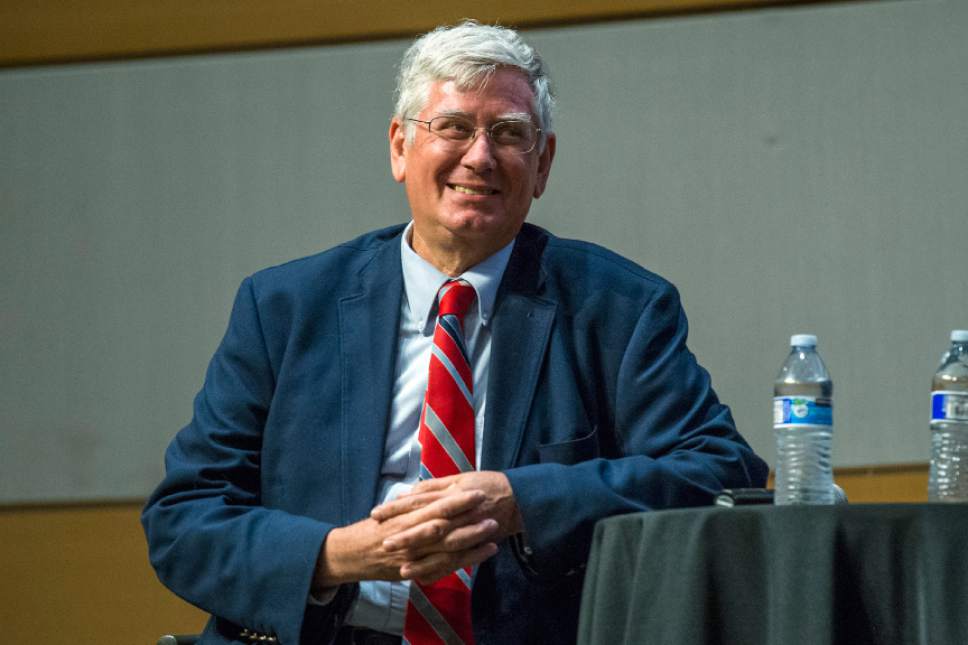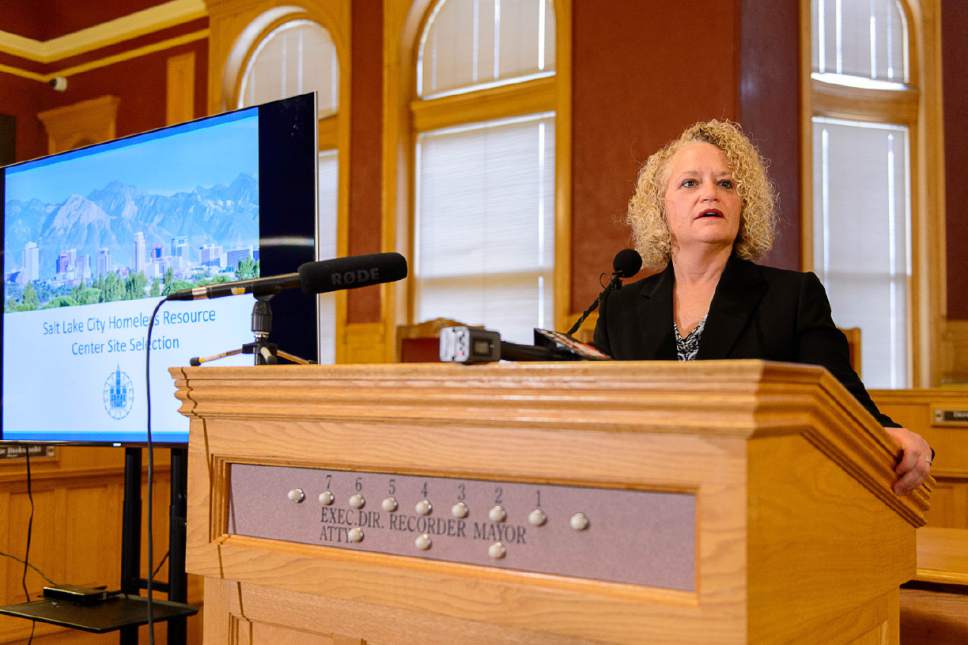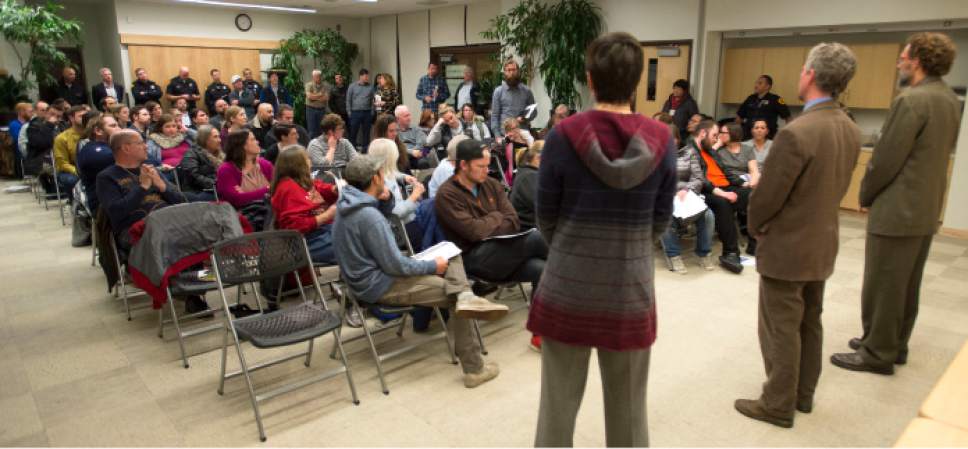This is an archived article that was published on sltrib.com in 2017, and information in the article may be outdated. It is provided only for personal research purposes and may not be reprinted.
Salt Lake City continues to fight to protect the secrecy surrounding the selection of homeless-shelter sites.
In early November, the City Council determined to choose new homeless-shelter sites behind closed doors in what would become a controversial process.
The public may never know what went on in those closed meetings because Mayor Jackie Biskupski's chief of staff denied a request for public disclosure of the minutes and recordings of those proceedings.
George Chapman, a community activist and former mayoral candidate, is fighting to open the records. He suspects the information is being kept "secret for political reasons."
Last fall, council members said they would select three or four shelter sites from about 19 potential locations outside the public eye. The reason for the blackout, they said: "They did not want to pit neighborhood against neighborhood."
Because the decisions involved real estate acquisitions, the city attorney said the closure was allowed by the state's Open and Public Meetings Act. The exemption is designed to keep public agencies from being taken advantage of in such property negotiations.
But the closed-door decision-making spawned fierce blowback from residents, particularly in the Sugar House area, who accused the council of sabotaging the democratic process.
The behind-the-scenes proceedings went on for weeks, but eventually four sites were agreed upon by the council and the mayor. Those locations were announced Dec. 13: 653 E. Simpson Ave. (2300 South), 275 W. High Ave. (1400 South), 131 E. 700 South and 648 W. 100 South.
The Simpson Avenue site was jettisoned after a public uproar, and later the 648 W. 100 South site also went by the wayside. Salt Lake County Mayor Ben McAdams later chose 3380 S. 1000 West in South Salt Lake as a shelter site.
On Jan. 30, Chapman, a Sugar House resident, requested the minutes from several closed City Council meetings, beginning Nov. 2, through an open-records request (Government Records Access and Management Act, or GRAMA) filed with the city recorder.
The request was initially denied Feb. 3. Chapman then appealed, but that, too, was denied.
On March 7, the city's chief administrative officer, Patrick Leary, who also is Biskupski's chief of staff, rejected the appeal, citing potential future real estate purchases and attorney-client privilege.
"First, the city may still seek to acquire one or more of the parcels discussed for other purposes, and its negotiating position should not be compromised by making recordings public," Leary's denial read. "Second, the public interest is not matched or outweighed by the necessity of allowing governmental entities to seek confidential advice from attorneys."
Chapman then appealed to the State Records Committee, which has scheduled arguments Thursday.
In an interview, Chapman said that it seems odd that the administrative branch of government is determining which documents from the legislative branch can be made public.
"This whole thing is messed up royally, and it's not good government," he said. "This is the most important issue in Salt Lake City, and it was made behind closed doors."
In his written appeal to the records panel, he argued for public disclosure of minutes and audio because "this discussion would have valuable public interest and value in ensuring that our public[ly] elected officials are held to the highest expected standards." He also pointed to the several million dollars in public money committed to purchasing the properties and planned construction.
None of the seven City Council members responded to multiple requests by The Salt Lake Tribune on Tuesday and Wednesday for comment.
When asked whether the council was in the loop on the GRAMA denial, a spokesman for the panel referred the newspaper to the city attorney.
Matthew Rojas, the mayor's spokesman, said despite Leary's signature on the denial, the decision was made by City Attorney Margaret Plane and that the City Council was aware of it.
The secrecy, Chapman surmised, may be due to the council and mayor fearing embarrassment by what was said in the closed meetings.
"They are worried about some discussion that took place behind closed doors," he said. "It could make some people look bad."
In his GRAMA denial, Leary said Chapman could appeal to the State Records Committee.
But Catherine L. Brabson, a senior city attorney, argued the Records Committee has no jurisdiction in the matter.
"[U]tah law mandates such records may only be released if a district court issues an order declaring the meeting in which the records were created was illegally closed."
However, Utah law allows the Records Committee to "order the disclosure of information properly classified as private, controlled, or protected if the public interest favoring access is greater than or equal to the interest favoring restriction of access."
Open-records appeal hearing
The State Records Committee has scheduled a hearing Thursday on George Chapman's appeal of an open-records request for minutes and audio recordings of closed-door Salt Lake City Council meetings. The case is third on the agenda of the meeting that begins at 9 a.m., in the State Archives Building, 349 S. Rio Grande St.







